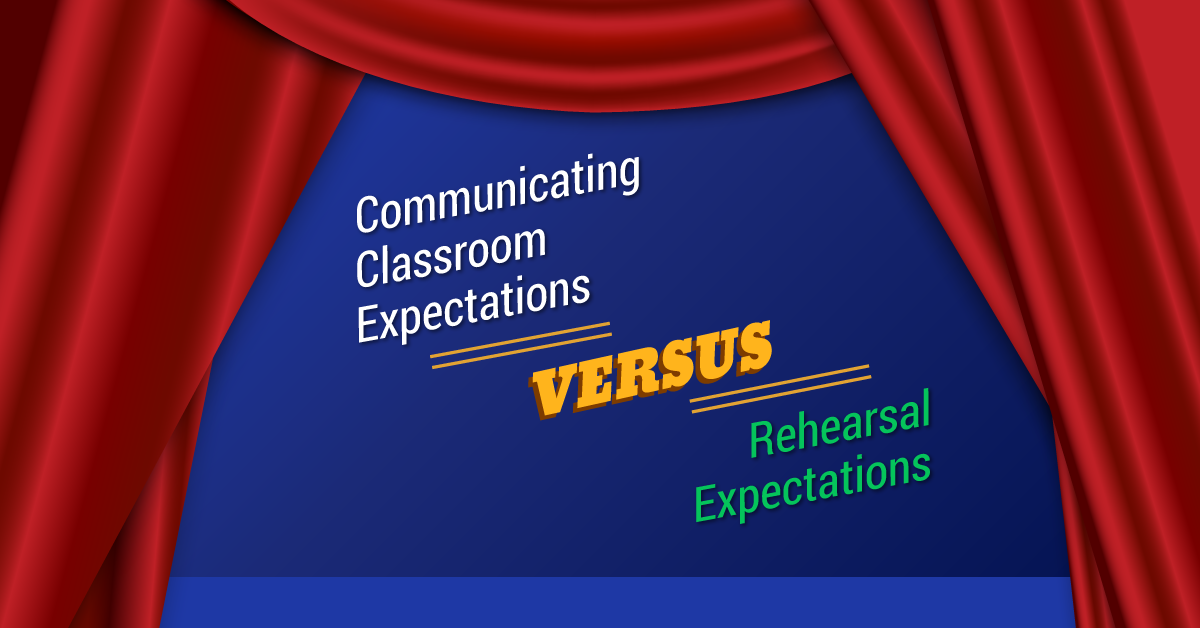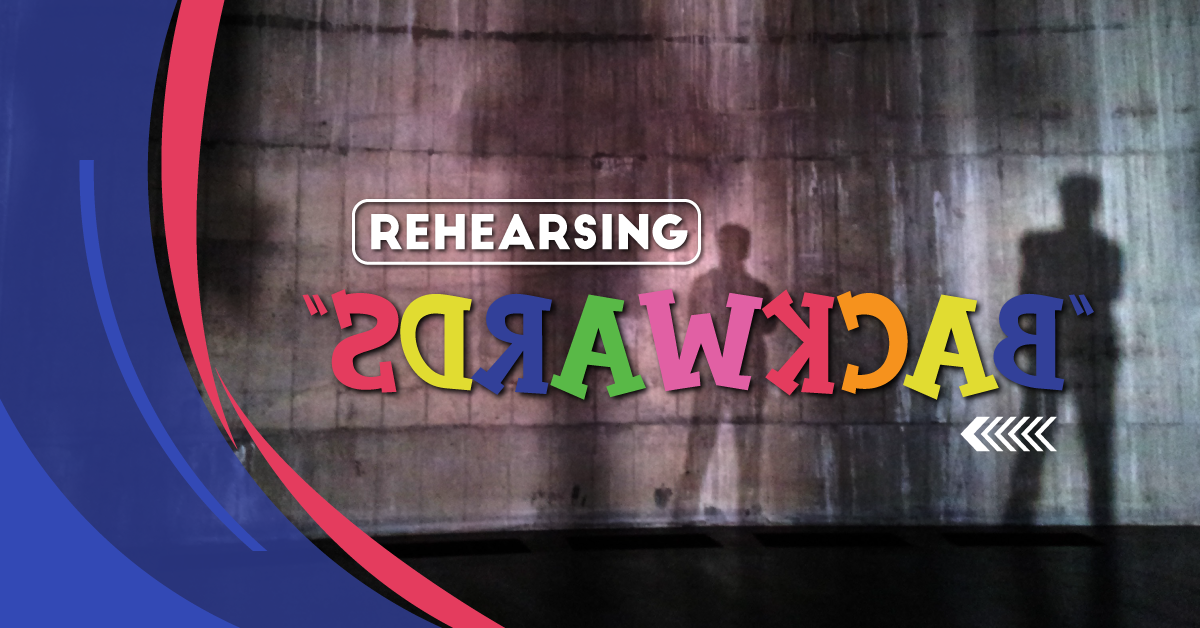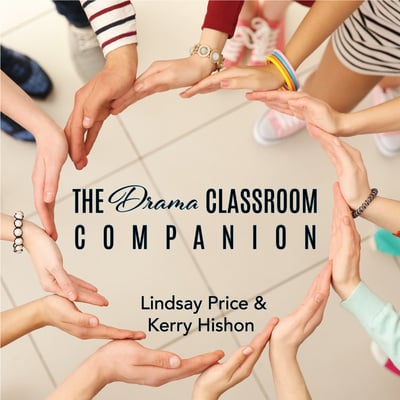Agatha Rex by Lindsay Price is a bold high school take on Antigone - packed with heart, conflict, and a powerhouse ensemble. One girl. One stand. One huge risk. *NEW COMPETITION VERSION AVAILABLE!*
Communicating Classroom Expectations vs. Rehearsal Expectations
Have you ever stopped to consider your expectations of drama class compared to your expectations during show rehearsals? It’s interesting and useful to compare the two. Do you notice yourself being more strict in the classroom and more flexible during rehearsals, or vice versa? Are your classroom policies the same for an extracurricular production? Are your students aware of the possible differences in expectations?
Clear communication about your expectations of your students in the drama classroom and in rehearsals is important, both so your time and efforts are respected by your students, and so your students feel that their time and efforts are respected by you. This creates a safe and positive environment for exploration, creativity, and fun, while achieving your goals at the same time.
Behavioural Expectations:
A respectful, positive attitude is the norm for both the drama classroom and rehearsals. In both cases, a clear explanation of your expectations for your students’ behaviour should be made available in written format (either digitally or in a written handout), or posted someplace where it is easy to see. That way, the expectations are easy to refer to, if/when it is necessary.
If there are any differences in behavioural expectations between the classroom and rehearsal, you’ll need to explain the reason for the difference. For example, you may decide that in rehearsal, cell phones are permitted when students are not onstage, or that students may work in the hallway when they aren’t in the scene, while during class, cell phones must be put away and students must stay in the classroom at all times. Be clear about why the two situations are different so everyone is on the same page.
Be aware of “unwritten” behavioural expectations as well. For example, it is not uncommon for students to become close to their teacher/director while working on a play with them, and come up with a nickname for that teacher, or even refer to the teacher by his or her first name during rehearsals. In this case, you may have to remind that student that they must refer to you as Mr./Mrs./Ms. _____ during class time. Again, be sure to explain why.
Attendance & Lateness:
Attendance and lateness policies should be basically the same for class as they are for rehearsal: be there, be on time, be ready to work. For rehearsals, however, students need to be made aware that schedules are generally made well in advance and if they are not there, it wastes everyone’s time because their scene partner is missing. In the drama classroom, it would depend on the topic being studied and if scene partners/groups were assigned for that particular day, or if the assignment is more individually focused. Students are still responsible for getting themselves caught up, either way.
Consider your school’s policies in terms of consequences for frequent lateness or absences. Is it a three-strike policy? When does the vice principal or principal get involved? Are the same policies applicable for extracurricular activities, or are they different? For example, your rehearsal attendance policy might be if students miss rehearsal three times without explanation, they may be removed from scenes or from the show entirely. Conversely, you may not be able to remove a student from your drama class for frequent absences.
Just as students receive notice of attendance and lateness policies from the school, give copies of your attendance and lateness expectations for rehearsal to your students at the beginning of the rehearsal period. You might even want to have copies of it available during auditions. If necessary, go over these expectations as a group, so each student is clear on your expectations and the possible consequences of missing rehearsal.
Stakes & Goals:
In a classroom setting, the stakes are much more individually focused. Students are focused on their own learning, their own grades, and their own performances. While there may be group work involved, ultimately their responsibility is their own performance.
Conversely, in a rehearsal setting, while students will certainly want to improve their own personal dramatic skills, they also must focus on the success of the show as a whole. This means that they not only have to focus on their own work within the production, but the work of each and every cast and crew member, and see how each person’s contribution fits together to create the world of the show.
Do your students’ expectations coincide with your own? Are your students clear about what exactly the expectations of them are for participating in drama class and/or the production? Their expectations may be vastly different than those above. Use the worksheet included below to help your students clarify their classroom/production expectations. You may even wish to fill it out yourself. You can then read over their thoughts and ideas and see how they compare to yours. If you notice any common threads, or if your students’ expectations do not match yours, this will give you a great jumping off point for classroom discussions. Your students’ responses may even make you reconsider your previous expectations. Either way, clear communication will only benefit your classroom and/or production experience in the long run.
Related Articles
The Drama Classroom Companion
by Lindsay Price & Kerry Hishon
The Drama Classroom Companion is filled with articles and exercises to build the skills needed for theatrical performance as well as real world skills like creative thinking, critical thinking, collaboration, and communication.
The Rehearsal Companion
by Kerry Hishon
You’ve chosen the play, paid the royalties, done the script analysis, held your auditions, and cast the show. Tomorrow is the first rehearsal. Are you ready? Really ready? The Rehearsal Companion can help!





